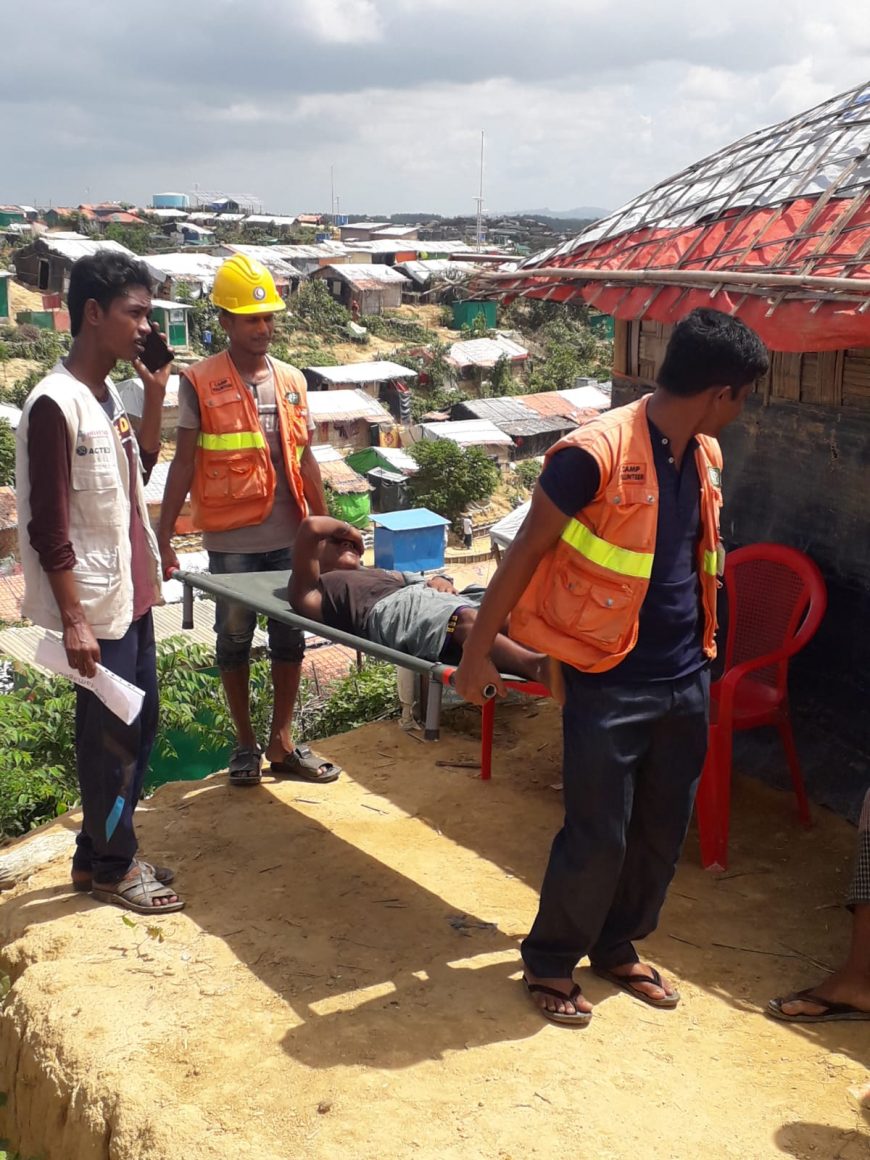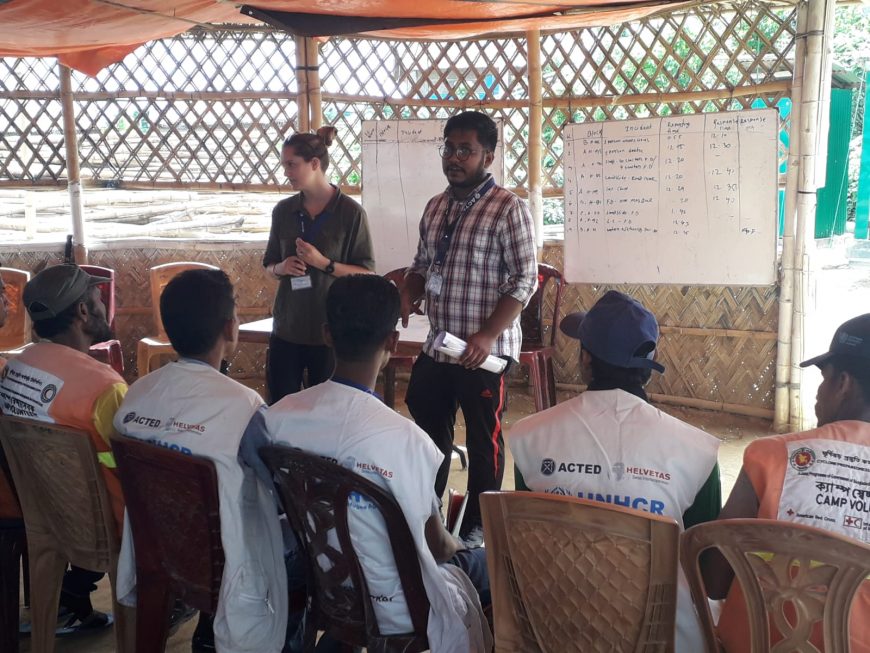With the monsoon season just around the corner, 700,000 Rohingya refugees brace themselves for cyclonic winds, never ending rain and deadly landslides. As a Camp Coordination and Camp Management (CCCM) partner of UNHCR and with support from Helvetas Swiss Intercooperation, ACTED has been leading the disaster risk reduction (DRR) activities within five camps in the Kutapolong ‘Mega Camp.'
In a country that boasts six seasons, monsoon season in Bangladesh has a reputation for being harsh. Running from June to October, the country is battered by high winds, wild cyclones and torrential rain. For both host communities and refugees alike, this creates a range of insecurities including the destruction of livelihoods, overflowing latrines and flattened shelters. In Kutapolong ‘Mega Camp’, where daily life for the Rohingya Refugees is already a struggle, monsoon preparedness is now at the heart of everyday life.
From fleeing persecution to preparing for monsoon
After the influx of 700,000 Rohingya refugees from Myanmar to Bangladesh in 2017, efforts have been directed towards providing essential goods and services such as shelters, food distribution and safe sanitary conditions. Two years after the surge, the camps within Kutapolong are beginning to stabilise with the projected aim to hand over control of the camps to the Bangladesh Government in 2020. As part of the ongoing response, site improvements and disaster resilience projects have been central to site managements activities due to Bangladesh’s reputation for natural disasters and the ongoing fragility of the Rohingya camps.
Ongoing site improvements and emergency preparedness drills
As part of their preparation for monsoon, CCCM staff have been running monthly emergency preparedness drills for their emergency volunteers and site assistants to ensure that the camps have the capacity to respond to a variety of emergencies including damaged shelter, destroyed latrines and serious injuries. Volunteers playing victims were dispersed throughout Camp 17 and all scenarios were run at the same time to stretch staff and volunteers to their limits. This was closely monitored by the ACTED Camp Managers to ensure that feedback on problems faced or gaps in emergency processes where identified and addressed during the final debrief.

The aim of the drills is to develop block-based response capabilities by coordinating volunteers from different sectors (WASH, Health, Protection and Site Management) in order to strengthen the capacity of the community to respond to their own needs in times of emergency
Ensuring efficient emergency response
In an emergency, the time taken to react can be the difference between life and death. Considering no CCCM staff are allowed in camp at night and often during monsoon season access to the camp is impossible due to adverse conditions, volunteers, many of whom had no previous experience in emergency response, now have the knowledge to perform lifesaving activities throughout monsoon season. As well as volunteer capacity building, the drills also harmonize the coordination between different partner NGO’s within the camp allowing for a more streamlined emergency response.
